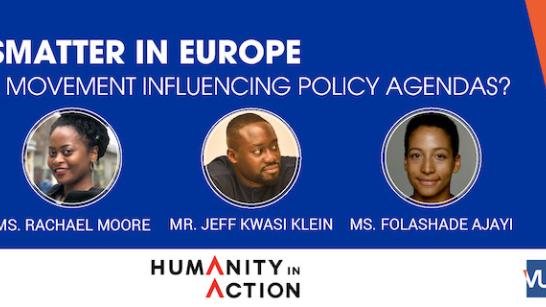Practical information

The killing of the African American George Floyd by the police in the United States sparked protests that quickly developed into a global phenomenon. In Europe, people protested on an unprecedented scope in several cities like Berlin, Paris, Brussels, Amsterdam or Vienna to express that black lives matter. Black individuals and organizations, usually an ‘invisible visible’ minority in Europe, were at the heart of these protests. Not only did they call for solidarity and actions against police violence and (structural) racism in the United States, they also highlighted similar concerns for People of African Descent (PAD) in Europe. Also in Europe, People of African Descent face high levels of discrimination. Black organizations in countries like Germany or France have for a long time lobbied for anti-discrimination policies but only received little attention. The recent #blacklivesmatter protests in Europe might serve as a catalyst for debates on racism and the need to tackle it. How is anti-black racism addressed in European public spaces? How is the transnational protest translated differently in different local and national contexts? Which demands are picked up by policy-makers and which policies are developed? And what visions for racial/ethnic equality do these responses, or the lack thereof, convey?
Speakers:
Dr. Noa Milman (Marie Curie Fellow, University of Copenhagen and project researcher 'Protesting the Death of George Floyd in Europe')
Ms. Rachael Moore (Coordinator RainbowHouse Brussels, founder of Rainbow Nation)
Mr. Jeff Kwasi Klein (Project lead and Policy advisor at Each One Teach One Berlin e.V. (EOTO))
Ms. Folashade Ajayi (PhD researcher at Vrije Universiteit Brussel and project researcher 'Protesting the Death of George Floyd in Europe')